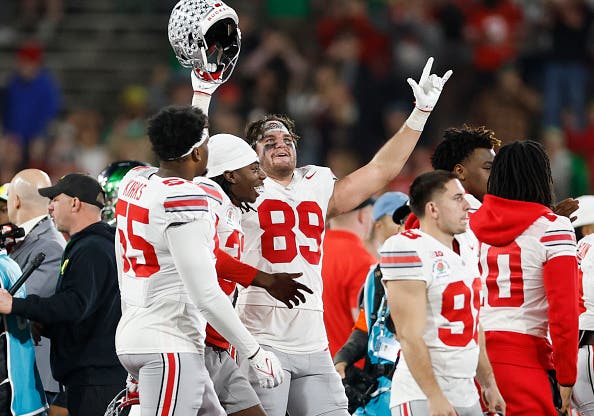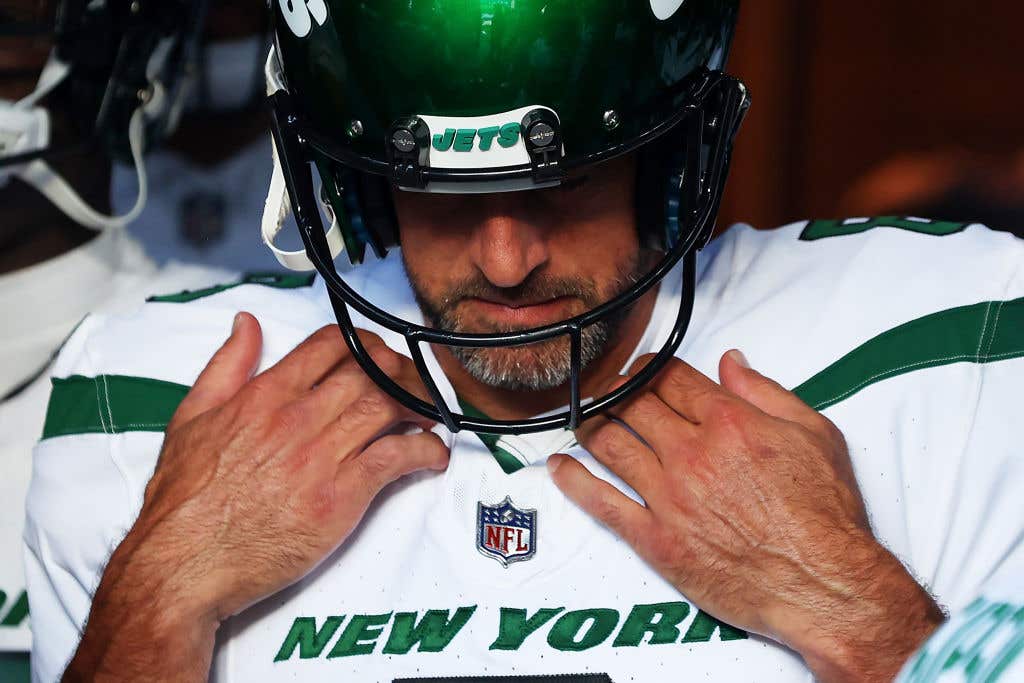
Paul George #13 of the LA Clippers reacts for a foul as he is consoled by James Harden #1 during a 102-100 Clippers win over the Denver Nuggets at Crypto.com Arena on April 04, 2024 in Los Angeles, California. (Photo by Harry How/Getty Images)
I want to be disrespected like Paul George. After George bailed on the Clippers and signed a 4 year 212 million dollar deal with the 76ers he said he wanted to stay in Los Angeles and continue to play for the Clippers. But they disrespected him with their initial offer. What was that offer, you ask?
60 million dollars over 2 years.
It sounds crazy to say 60 million dollars is disrespectful. But he is right. That was a low ball offer. So low that it tells me they did not want to re-sign him without actually telling me they did not want him. Right? He said he was willing to take "less" than market value in a 3 year deal for 150 million to stay. Obviously that is still a lot less than the market offered him so he left.
DISRESPECTED LIKE PAUL GEORGE
Back to me. I would like to be disrespected like Paul George. 2.5 million dollars a month? 1.25 million per paycheck? Yeah sign me up for that! I'll take all of your disrespect and then ride off into the sunset!
Two quick thoughts on Paul George. I am surprised the Clippers let him go because he has name value and the Clippers are opening a new arena this upcoming season. They still have James Harden and Kawhi Leonard to draw fans. And we will see if Paul George along with Joel Ebiid and Tyrese Maxey can all stay healthy and push the Celtics in the East.
For more on this story tune in each weekday to Craig Shemon and Company from 2-6 on ESPN Southwest Florida.
Make Your Money Grow with These Low-Risk Investments
If you have some money wasting away in a savings account that doesn't have interest, then you might want to consider making your money grow with low-risk investments. Financial experts say that certain low-risk investments can really help pad your savings.
What Are Low-Risk Investments?
Before we get into the best low-risk investments, let's look at what exactly is a low-risk investment. The official definition is basically what you would expect from the definition of a low-risk investment. According to the financial experts at Capital.com, it's "an investment where there is perceived to be just a slight chance of losing some or all of your money. Low risk investments offer you a security blanket as they’re not likely to suddenly drop in value."
In contrast, according to Investopedia.com, "A high-risk investment is one for which there is either a large percentage chance of loss of capital or under-performance—or a relatively high chance of a devastating loss." They add that, "The first of these is intuitive, if subjective: If you were told there’s a 50/50 chance that your investment will earn your expected return, you may find that quite risky." So, for example, a 50/50 risk might not seem risky to some, but it might seem risky to others. An investment with a 99% risk will obviously seem risky to everyone. But, with high-risk investments come big payouts, so that's what lures people in. For example, a separate article from Investopedia.com states that some high-risk investments can double your money. That's obviously a much bigger return than you would see in your average investment. As they state, "Make no mistake, there is no guaranteed way to double your money with any investment. But there are plenty of examples of investments that doubled or more in a short period of time."
So, if you're interested in making a ton of money, or losing it all, high-risk investments such as investing in foreign emerging markets may be of interest to you. "A country experiencing a growing economy can be an ideal investment opportunity," experts at Investopedia.com state. "Investors can buy government bonds, stocks, or sectors with that country experiencing hyper-growth or ETFs that represent a growing sector of stocks." They add "spurts in economic growth in countries are rare events that, though risky, can provide investors with a slew of brand new companies to invest in to bolster personal portfolios."
Now, let's move onto some low-risk investments for those who don't want to risk losing their money. Of course, talk to your financial advisor before making any of these moves.
Invest in certificates of deposit (CDs)
You've probably heard of CDs being low-risk investments. Fidelity.com explains that "CDs provide reliable, fixed-rate returns on a lump sum of money over a fixed period of time, such as six months, one year, or five years." They add that the great thing is that if you "get a traditional CD at a bank or credit union where they are insured by the Federal Deposit Insurance Corporation (FDIC) or the National Credit Union Association (NCUA)." Usually, CDs have a minimum deposit, and you’ll have to pay a penalty if you take your money out too soon.
High-yield savings accounts
High-yield savings accounts are like your regular savings account, but they earn more interest. "You can use these accounts for long-term savings goals or to hold extra money from your checking account," CreditKarma.com states. "For example, if you want to start saving for a house or building up an emergency fund, this could be a great option."
U.S. treasury bills, notes and bonds
Forbes.com says that right now, the risk level for U.S. treasury bills, notes and bonds is "very low." They add that, "U.S. Treasury securities are backed by the full faith and credit of the U.S. government. Historically, the U.S. has always paid its debts, which helps to ensure that Treasurys are the lowest-risk investments you can own."
Money market funds
Fidelity.com states that, "Money market funds are mutual funds that invest in short-term, low-risk assets like Treasury and government securities, commercial paper, or municipal debt—depending on the focus of the fund." They add that, "Because their underlying investments are typically high quality, they are generally less volatile than other types of mutual funds, such as stock funds."
Fixed annuities
Fixed annuities are a pretty safe bet. As Forbes.com explains, "Fixed annuities are a popular type of annuity contract that are frequently used for retirement planning, but can also be useful for medium-term financial goals." They add that, "Sold by insurance companies and financial services companies, a fixed annuity guarantees a fixed rate of return over a set period of time, regardless of market conditions."
Invest inside your comfort zone
People talk about stepping outside of their comfort zone in life, but really, investing isn't a place to do this. You know how much money you have to "play" with, so if you're worried about putting too much money in the market, these low-risk investments could still help you make money on your money.





